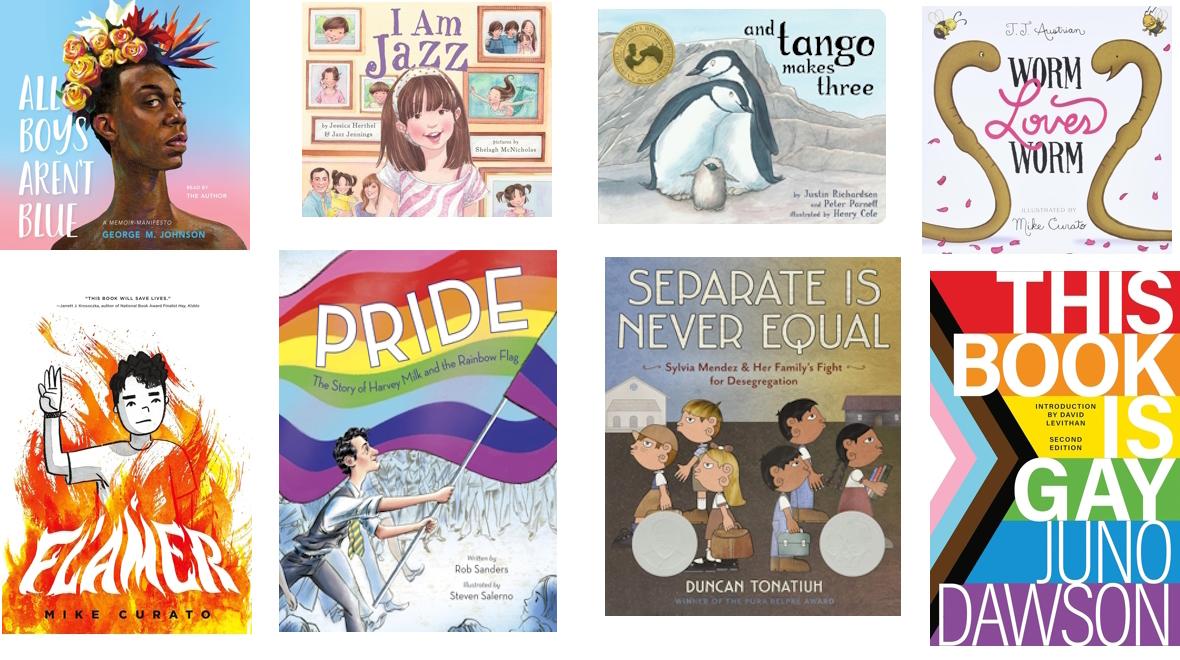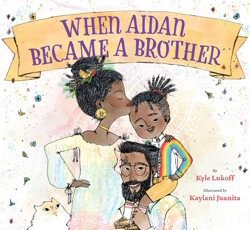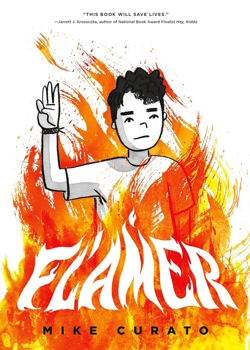
Photo:
All images from Amazon
Banned Books Week allows people to celebrate stories that have been challenged and banned, reflect our own viewpoints of censorship and practice critical thinking. When we celebrate Banned Books Week this year (Sept. 22–28) we celebrate our right to read whatever we want, whenever we want, for whatever reason.
The number of banned and challenged books is skyrocketing
In The American Library Association's (ALA) 2023 report for banned and challenged books, the ALA’s Office for Intellectual Freedom noted 4,240 challenges from last year, which is the highest number of challenges recorded since data collection began 20 years ago and is a 65 percent increase over 2022. PEN America tracks the most banned picture books, which included 317 titles in the 2021–22 school year.
The sharp increase in bans and challenges over the last year are alarming and it is easy to feel anxious about it. But rather then feel overwhelmed, I try and focus on what I can control: my to-be-read shelf. I’ll continue to read the stories that others want to hide, if only for the hope it gives me a new perspective, that it takes my heart out and asks me to feel. Then I can pass them on to my friends and hope it does the same thing for them.
This year during Banned Books Week, I’d like for us all to read a book that sparks something in us, especially if it makes us weary or concerned. Share what you read on social media and talk about it with your friends and community. Through conversations we can expand our perspectives and see that everyone has a story to tell and everyone deserves to be heard.
Want to join me? Here’s a list to get you started:
Banned books to read together
“The Name Jar” by Yangsook Choi
Unhei moves to a new school in America and is unsure about using her unfamiliar name, so she starts a jar to pick a new, more American name. Through her journey, she learns to embrace her heritage and the value of her own name, finding confidence and acceptance among her classmates

“In Our Mothers’ House” by Patricia Polacco
This heartwarming picture book that celebrates the loving family life of two mothers raising their children in a close-knit, supportive household. Through vibrant illustrations and a touching narrative, the book emphasizes the value of love, acceptance and diversity in family structures.

“When Aidan Became a Brother” by Kyle Lukoff
This book was the winner of the 2020 Stonewall Book Award and celebrates the changes in a transgender boy’s life. When Aidan finds out he is going to be a big brother he wants to make sure everything is prefect for his new sibling. But what does that mean? With the help and support of his family, Aidan learns that the most important thing he can do as a big brother is love his whole self.

“They, She, He Easy as A,B,C” by Maya Christina Gonzalez
This simple, rhyming children’s book shows that everyone can be included and part of the dance. This book naturally demonstrates how to use a wide range of pronouns and expand readers’ ideas about gender, showing that inclusivity can be as easy as A-B-C.

“Separate Is Never Equal: Syliva Mendez & Her Family’s Fight for Desegregation” by Duncan Tonatiuh
This nonfiction picture book tells the story of Sylvia Mendez and her family’s legal battle against school segregation in California, prior to Brown vs. Board of Education.

“Pride: The Story of Harvey Milk and the Rainbow Flag” by Rob Sanders
A tribute to Harvey Milk’s legacy and the Rainbow Flag, celebrating the courage to embrace our authentic selves and advocate for LGBTQ rights.

“I Am Jazz” by Jessica Herthel and Jazz Jennings
An autobiographical narrative sharing the life and experiences of Jazz Jennings, a transgender person.

“We Are Grateful: Otsaliheliga” by Traci Sorell
Told by an enrolled citizen of the Cherokee Nation, this book depicts modern Native American life of the Cherokee people by highlighting their cultural traditions and the natural world around them. The book reflects the community’s appreciation for their heritage, family and the changing seasons.

“And Tango Makes Three” by Justin Richardson and Peter Parnell
Based on a true story of penguins, Roy and Silo from the Central Park Zoo, who formed a same-sex partnership and raised a penguin chick named Tango.

“The Baby Tree” by Sophie Blackall
Straightforward and informative, this picture book addresses the question of reproduction and childbirth.

“Worm Loves Worm” by Mike Curato
Two worms decide to get married, but gender roles are explored when everyone begins wondering who will wear a dress and who will wear a tux.

Banned books for teens
What’s the quickest way to get a teenager to do something? Tell them they can’t. Show your teens this list and let them know they are not supposed to read any of these books. They will be heading to the library before you finish your sentence.
“Maus I: A Survivor’s Tale” (graphic novel) by Art Spiegelman
A dual narrative exploring Spiegelman’s struggles to understand and document his painful family history and how he explores his father’s experiences as a Holocaust survivor.

“The Bluest Eye” by Toni Morrison
Pecola Breedlove, a young Black girl in 1940s America, longs for blue eyes and white skin, believing they will bring her beauty and acceptance. This novel explores themes of racial identity, beauty standards and the impact of internalized racism on self-worth.

“Flamer” by Mike Curato
Aiden, a teenage boy, is grappling with his identity and sexuality while attending a summer camp. As he navigates the challenges of self-discovery, bullying and self-acceptance, Aiden learns to embrace his true self and find strength in his community.

“The Hate U Give” by Angie Thomas
When a police officer fatally shoots Starr’s childhood friend Khalil, she becomes the witness to a crime that makes national headlines. What she decides to say will impact her life and community in unimaginable ways.

“This Book is Gay” by Juno Dawson
This best-selling, nonfiction book provides a candid and humorous guide to understanding LGBTQ identities, relationships and experiences. It combines practical advice with personal anecdotes to help readers navigate their own journeys and foster a more inclusive perspective.

“The Perks of Being a Wallflower” by Stephen Chbosky
Charlie, a sensitive and introverted high school freshman, navigates the complexities of adolescence, including friendship, love, and mental health. Through a series of heartfelt letters, he reflects on his experiences and growth while coping with past trauma and finding his place in the world.

“Gender Queer” by Maia Kobabe
Maia Kobabe, who uses e/em/eir pronouns, first wrote this autobiography covering eir journey of self-discovery as a guide for eir family to detail what it means to be non-binary and asexual.

“Out of Darkness” by Ashley Hope Perez
Set in 1937 in a deeply segregated Texas town, this work of historical fiction tells the story of family, racial issues and romance between Naomi Vargas, who is Mexican American, and Wash Fuller, who is Black.

“Lawn Boy” by Jonathan Evison
Mike Munoz, a 22-year-old landscaper who, after a series of setbacks and personal revelations, strives to improve his life and achieve his dreams. As he navigates the challenges of his working-class existence, Mike reflects on his relationships, identity, and the pursuit of a better future.

“All Boys Aren’t Blue” by George M. Johnson
This young adult memoir written by LGBTQ activist and journalist George M. Johnson details growing up as a Black queer boy in New Jersey and Virginia. Through poignant reflections on family, identity, and resilience, Johnson provides a powerful and personal narrative about navigating his sexuality and finding his place in the world.

Want more? Check out the Top 10 Most Challenged Books of 2023.
More inspiring reads: |
Editor’s note: This article was originally published a few years ago and was updated most recently in August 2024 by ParentMap’s associate editor, Kari Hanson. This article contains affiliate links. If you purchase products through links on our site, ParentMap may earn an affiliate commission.











